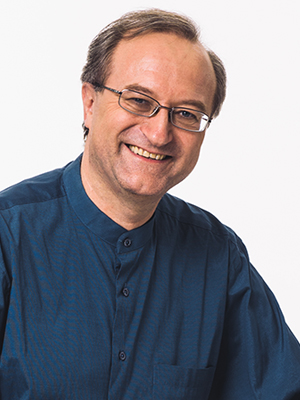Profile of the month

Norbert Lehming
Staatsexamen (BSc Hons equivalent), PhD, Habilitation (2000)
Associate Professor
Department of Microbiology and Immunology
Email: micln@nus.edu.sg
Tel: 6516 3499
Research Interest
The regulation of transcription and the repair of damaged DNA are the topics of interest. Transcription is the basis for the realisation of genetic information, and its regulation is of vital interest for all organisms. All organisms have to be able to repair their DNA when it gets damaged and the inability to repair damaged DNA is a hallmark of cancer. Transcriptional regulation DNA repair are achieved by protein interactions between DNA-bound transcription factors and DNA repair enzymes. Split-Ub, an alternative two-hybrid system, is used to analyse these protein interactions inside living cells. Split-Ub is based upon conditional protein degradation: A protein of interest is fused to the C-terminal half of ubiquitin, which is C-terminally extended by a reporter protein like RUra3p, RGpt2p, or RGFP. In the reporter protein, the first amino acid has been replaced by arginine, an instable residue in the N-end rule pathway of protein degradation.
A second protein of interest can be tested for interaction with the first protein by fusing it to the N-terminal half of ubiquitin. The local concentrations of the two halves of ubiquitin will only be high enough to allow the formation of a native-like ubiquitin if the two proteins interact inside the cell. The native-like ubiquitin is cleaved by the ubiquitin-specific proteases, and the free reporter is degraded by the enzymes of the N-end rule. Therefore, yeast cells become resistant to 5-fluoro orotic acid, a drug counterselecting Ura3p, and human tissue culture cells become resistant to 6-thioguanine, a drug counterselecting Gpt2p, upon interaction of the two proteins inside these cells. The GFP reporter can be used in any organism. The system has been used to screen libraries in order to identify new interaction partners for transcription factors and DNA repair enzymes.
